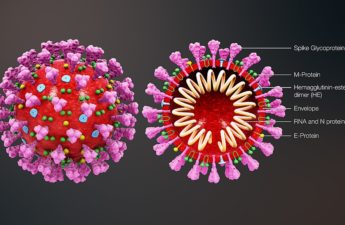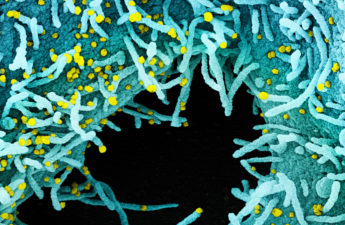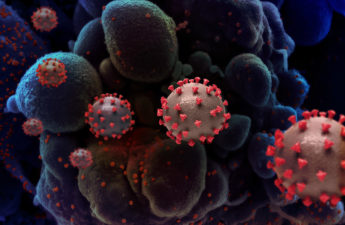Category: Public Health
US birth rates are at record lows – even though the number of kids most Americans say they want has held steady
Birth rates are falling in the U.S.and are now close to the lowest level in a century. Is this decline because, as some suggest, young people aren’t interested in having children? Or are people facing increasing barriers to becoming parents?
Washington’s homelessness challenge focus of Inslee’s State of the State address
“When there’s not enough housing for all, rents and prices skyrocket beyond what many can afford,” Inslee said. “An until we fix our housing crisis, thousands of people will remain homeless.”
COVID in 2023 and beyond – why virus trends are more difficult to predict three years on
So how will the pandemic be felt in 2023? This question is in some ways impossible to answer, given a number of unknowns. In early 2020 the scientific community was focused on determining key parameters that could be used to make projections as to the severity and extent of the spread of the virus. Now, the complex interplay of COVID variants, vaccination and natural immunity makes that process far more difficult and less predictable.
Public Health – Seattle & King County report assesses its COVID response
King County achieved the lowest death rate due to COVID-19 of the twenty largest metropolitan areas of the country (as of January 2022).
Health Harms of Mass Shootings Ripple Across Communities
Research shows that mass shootings lead to higher rates of depression and anxiety and higher risks for suicide among young people. They also lead to an overall decline in a community’s sense of well-being. Some studies suggest that mass shootings damage economic prospects in a community, diminishing productivity and earnings.
How to reduce risk of COVID-19 by improving ventilation at your holiday gatherings
Opening windows and using filtration tools are effective ways to reduce indoor COVID-19 transmission.
HOW DID COVID-19 IMPACT PEOPLE LIVING WITH DISABILITIES?
Many talked about feeling socially isolated and experiencing worsening anxiety and depression during the pandemic. The isolation could be particularly acute for folks living with a disability that made it harder or not advisable for them to go out, such as people living with mobility restrictions or who are immunocompromised.
Proliferating Wildfires Threaten Health Across the Country
By Matt VasilogambrosStateline As wildfires continue to burn in parts of the United States, state public health officials and experts are increasingly concerned about residents’ chronic exposure to toxin-filled smoke. This year has seen the most wildfires of the past…
The COVID-19 Booster’s Public Relations Problem
When it comes to the newest boosters, so far about 4.4 million people — about 1.5% of those eligible — had opted for the shots through Sept. 21/
Is Covid ‘Under Control’ in the US? Experts Say Yes
There remains some debate among public health experts about whether the pandemic is “over” — or whether it realistically can ever be. There is no official arbiter for making that decision, and the word “over” suggests a finality that is not well suited for describing a pathogen that will exist in some form indefinitely. However, we found broad agreement among infectious-disease specialists that the pandemic by now is “under control.”
COVID-19 vaccine clinics come to state colleges
While the focus of these clinics will be providing the recently released Omicron-targeted bivalent boosters, primary series vaccines from both Pfizer BioNTech and Moderna will also be available.
Inslee: Washington’s COVID-19 emergency to end Oct. 31
Nearly three-quarters of Inslee’s 85 emergency orders related to the virus have already been lifted, and an additional 13 health care related orders will end on Oct. 27. The remaining 10 orders, including the underlying state of emergency, will be lifted on Oct. 31.
Fears of a polio resurgence in the US have health officials on high alert
A virologist explains the history of this dreaded disease
Monkeypox in King County: An Update
As of today, 310 King County residents have been diagnosed with MPV, an increase from 48 cases in mid-July.














